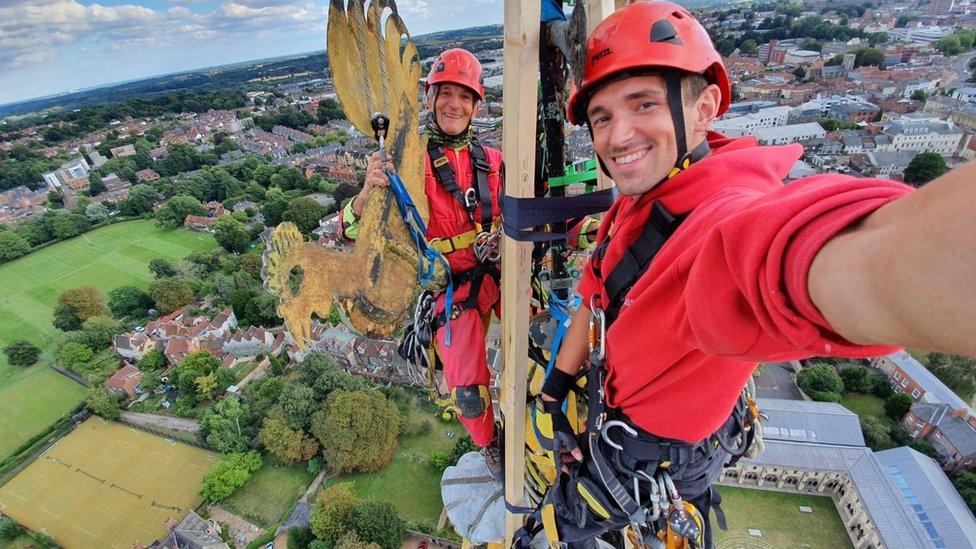Norwich Cathedral: Restored weathercock returns to spire
- Published
Norwich Cathedral weathercock returned to spire after restoration
A 264-year-old weathercock has been returned to a 315ft cathedral spire in an "intense and delicate" operation.
The weathercock, which has crowned Norwich Cathedral since 1756, was back in place by Thursday evening, after being regilded.
The work to put it back in place, by father-and-son team Chris, 72, and Sam Milford, 31, took nine hours.
Chris Milford said: "It was an exhilarating experience and one that tests and bonds you."
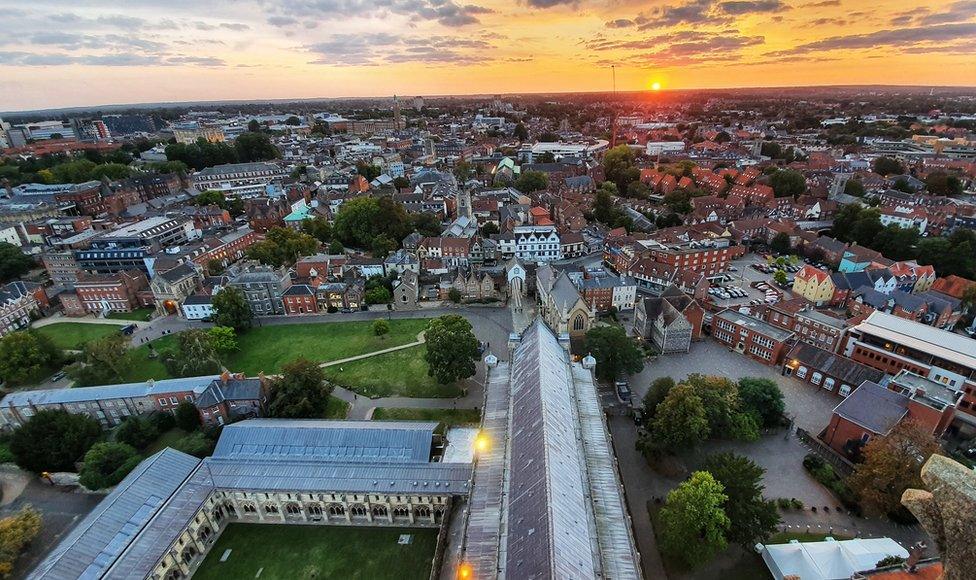
The nine hour installation did bring the reward of a beautiful city sunset view from the spire
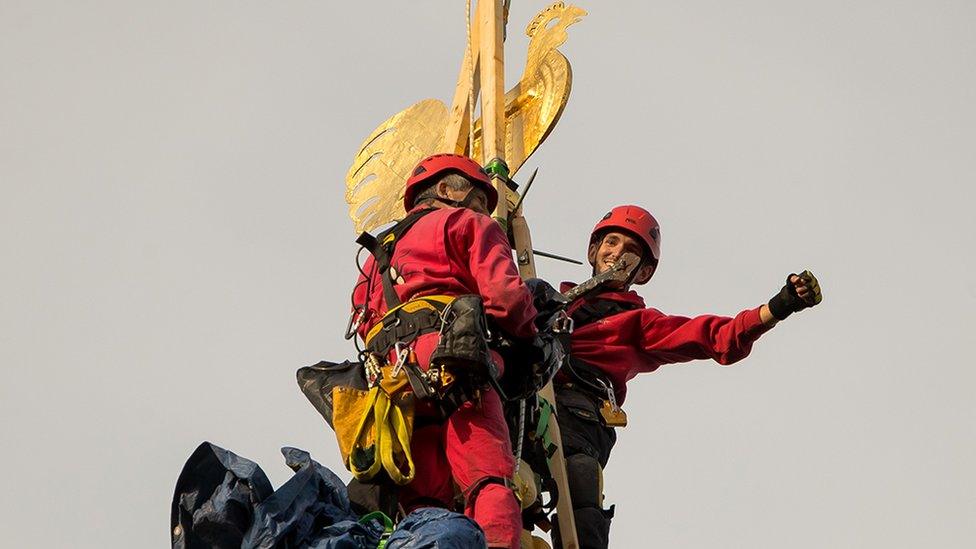
Father-and-son team Chris (left) and Sam Milford went up the tower at about 13:00 BST and came down at 21:00
It is believed to have been the first time the 2ft 9in (83cm)-tall weathercock has been renovated since it was last brought down in 1963.
The conservationists, from Bristol-based WallWalkers, scaled the 315ft (96m) spire with a system of ropes to refix the cockerel-shaped wind vane, with its new thin layers of gold coating.
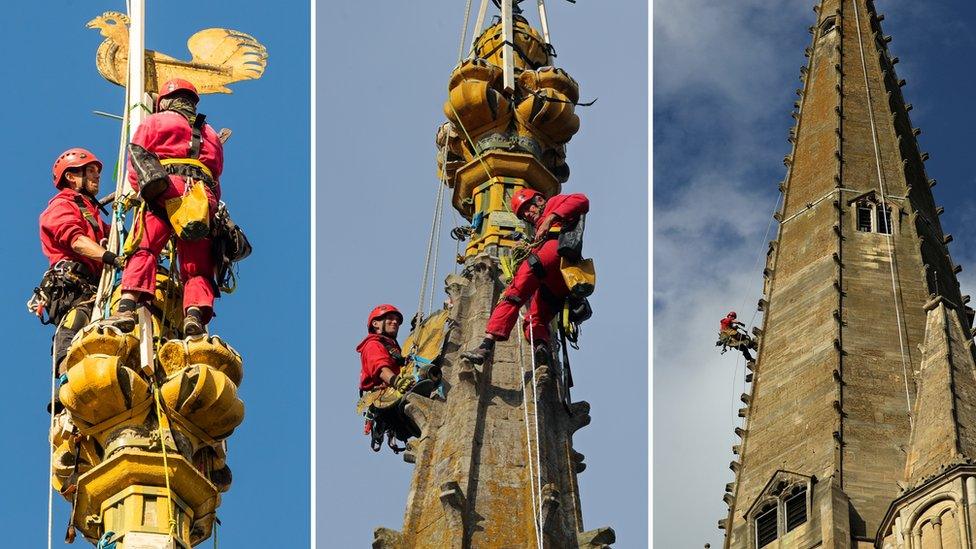
They had removed the vane in another operation in August
Sam Milford said they started at about 13:00 BST and it was back in place by about 18:00 in a "very delicate manoeuvre that took a lot of tiny problem-solving that really mounts up".
"It was incredible and intense," he said.
His father said: "It was tiring, mentally exhausting, but exhilarating."
He added that "it took a lot of 'out-of-the box' thinking" to keep everything safe and steady, whilst dealing with the wind and stonework.
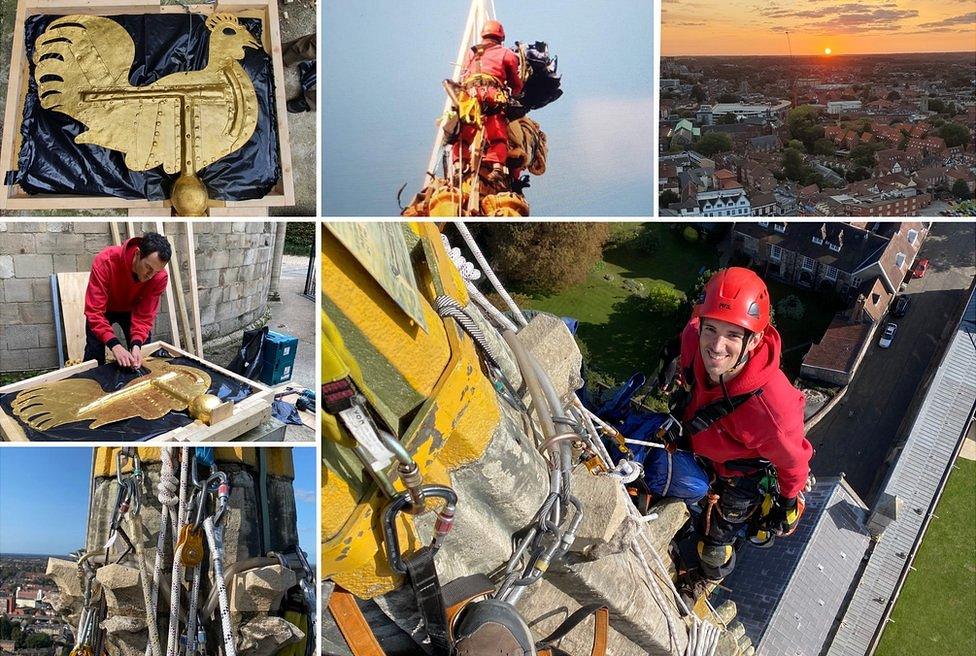
The golden cockerel has had pride of place on the top of the cathedral since the 18th century
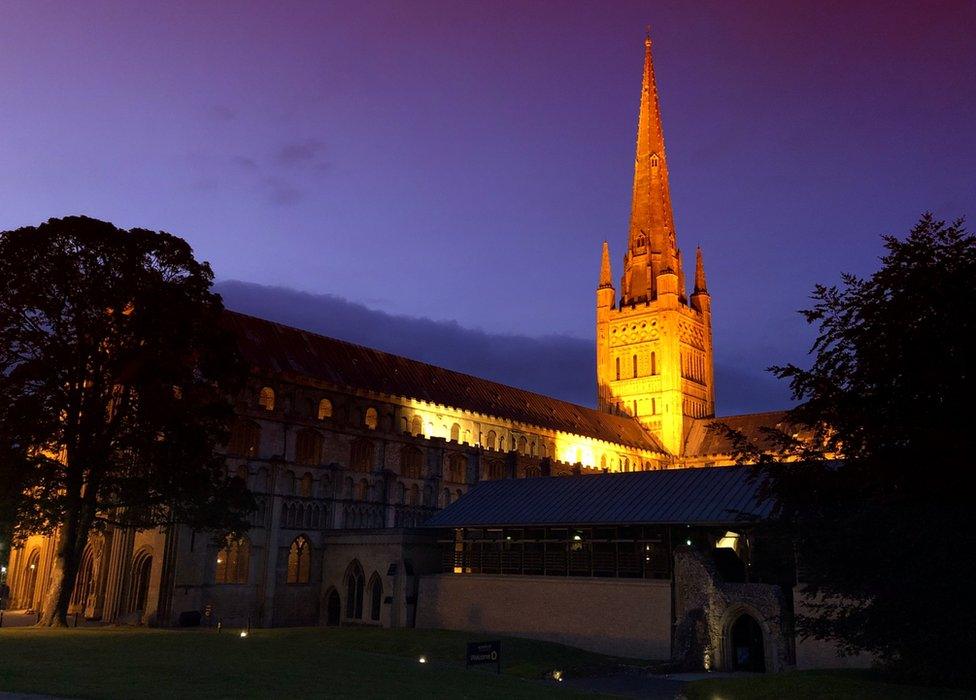
Norwich Cathedral is visible from across the city and illuminated at night
The cathedral dates back to 1096 and has had three documented spires since its construction - two wooden ones and the current stone and brick incarnation completed in about 1485.

Find BBC News: East of England on Facebook, external, Instagram, external and Twitter, external. If you have a story suggestion email eastofenglandnews@bbc.co.uk, external
- Published18 September 2020
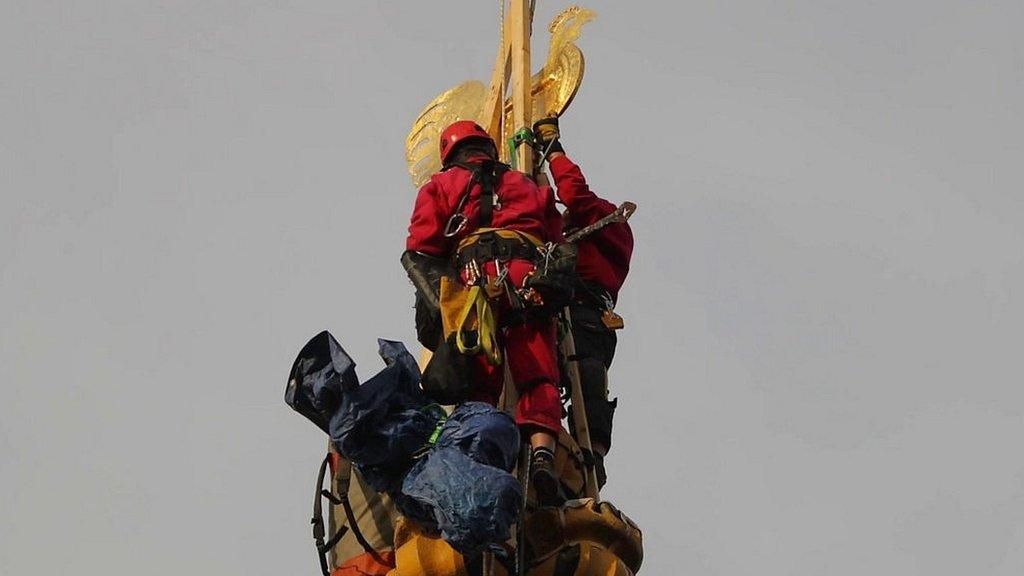
- Published17 September 2020
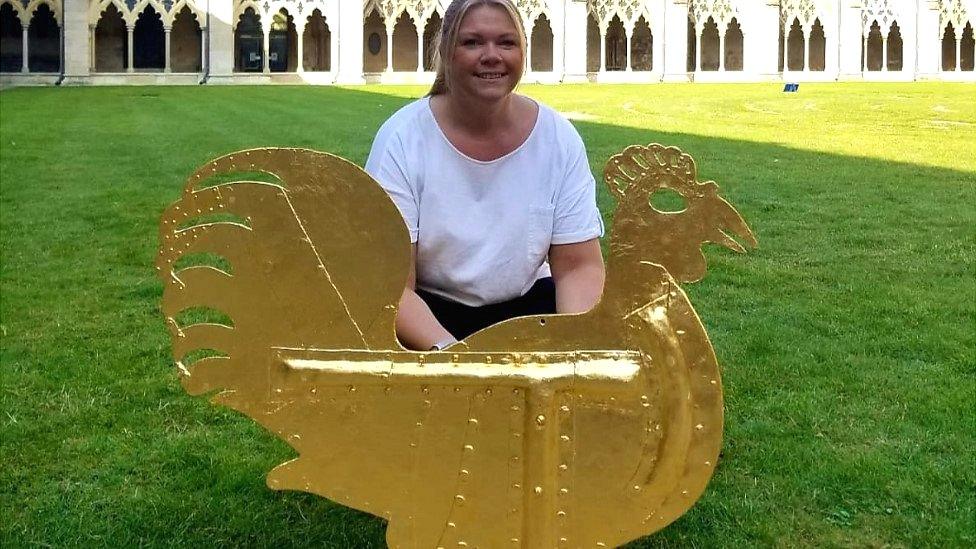
- Published24 August 2020
